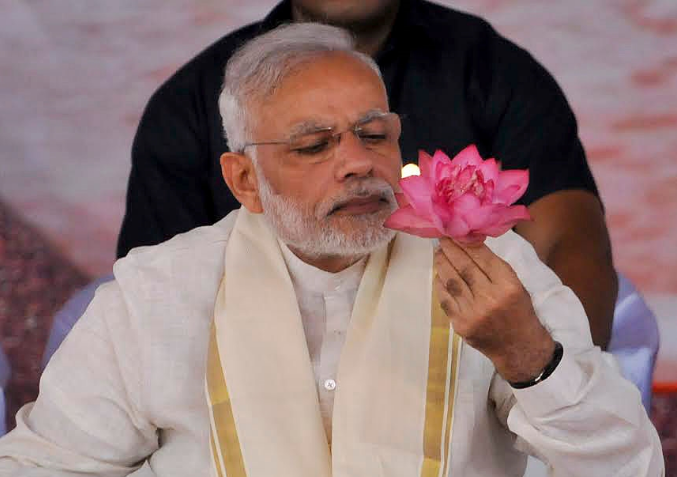
Within moments of the Indian Army Chief’s statement that India would give an “intense and immediate” response, when asked about alleged beheadings of Indian soldiers by Pakistani forces, there was widespread debate in Pakistan over developing a counter narrative to this assertion. Some felt that the Sharif government missed an opportunity at Ufa to show Islamabad’s indomitable commitment to the Kashmiri cause as a prerequisite for talks. Such statements by army chiefs or governments are often viewed as provocations, and manage to stir emotions of anxiety, anguish, and fear on both sides of the border. What is often missed, however, is the broader context in which such provocations are made in the first place. Such statements do need to be taken seriously, but become largely untenable in the long run. At present, both India and Pakistan cannot afford a limited war with nukes, rendering a nuclear confrontation unlikely. Still, war mongering and Pakistan-bashing on the part of the Narendra Modi government continues, despite the sacrifices that Pakistan has made in the fight against terrorism.
While it may be true that Pakistan has had a checkered history with militant groups, the fact that the country has been facing blowback from Operation Zarb-E-Azb, and has continuously pressed for regional connectivity is worth appreciating. Secondly, the current government under Prime Minister Nawaz Sharif has been considerably benign towards India, and has shown great character by advocating for closer economic cooperation between New Delhi and Islamabad in a rather hostile environment at the other end. One example is the joint statement at Ufa, where not mentioning the Kashmir factor as an icebreaker for closer cooperation and bridging trust deficits with India is testament to the concession that Pakistan has made for the betterment of regional security in South Asia.
Hence, the onus is really on the Bharatiya Janata Party (BJP) to show some flexibility, which sadly the Modi government has failed to do so far. It always takes two to tango for peace and stability. BJP under Modi has oozed anti-Pakistan sentiment since it came to power. In fact, Pakistan-bashing was a key election issue, alongside promises of economic development and capping corruption. Furthermore, as a divisive politician who champions the cause of economic development and a stronger foreign policy, with blatant disregard for human development in his state of Gujarat, the need to isolate political rivals and critics makes perfect sense. Although, this in many ways is common practice in South Asian politics, and also takes place in Pakistan and Sri Lanka. Other overtures, such as putting Pakistan on the back foot through trips to Abu Dhabi, certainly hint at the fact that negotiations and talks of economic cooperation with Pakistan are of petty importance, and a hawkish stance is more desirable for Modi and the BJP, in order to consolidate their position at the center.
The frustration stems from the fact that the BJP has not always assumed a hawkish attitude towards Pakistan. As a powerful political party with massive support in India, the BJP has had its set of demonstrative leaders who opted for brain over brawl – Atal Bihari Vajpayee comes to mind. Vajpayee’s diplomacy had garnered immense respect in Pakistan, where he is viewed as a man of considerable aptitude and prudence, and someone with the ability to deal with Pakistan through shrewd decision-making instead of rhetorical rants. The same, however, cannot be said about the Narendra Modi government, at least from a Pakistani perspective. It constantly strives to push Pakistan into submission over the issue of terrorism, and plans on isolating a nation which is strategically significant and opens up the doors to the Persian Gulf. To add to that, Modi’s checkered past and efforts to allay concerns that the BJP would not become overly aggressive and handle any misadventure from across the border by critics, seemingly fit into the strategic calculus of India’s stance on Pakistan under this government.
For Pakistan, decoding this mantra and acting prudently, instead of forcefully, in response to this vituperative rhetoric is key. The fact that Pakistan is state which is economically inferior yet boasts plenty of potential given the relevance of the China Pakistan Economic Corridor (CPEC), and this government’s dedicated efforts to curb extremism through the National Action Plan (NAP), are important to note. The Chief of Army Staff, General Raheel Sharif, has made it clear that any reckless adventurism by India would be met with a fitting response from Pakistan. This should be enough to deter the hawks in New Delhi, given that Pakistan relies on full spectrum deterrence rather than strategic deterrence.
Stability in South Asia cannot be achieved without Pakistan, and the need is to ensure that economic cooperation bridges trust deficits and allays concerns of escalation, which the BJP is failing to do. The Sharif government, on the other hand, is striving towards closer cooperation, although this could pave the way for economic competition since both governments came into power largely because of their economic promises. Having said that, it is undeniable that governments will continue to be governments and politics will be politics. With the RSS acknowledging that talks with Pakistan could prove to be fruitful, one wonders whether this RSS mantra is the one that Modi would want to follow.
***
Image: Hindustan Times, Getty


